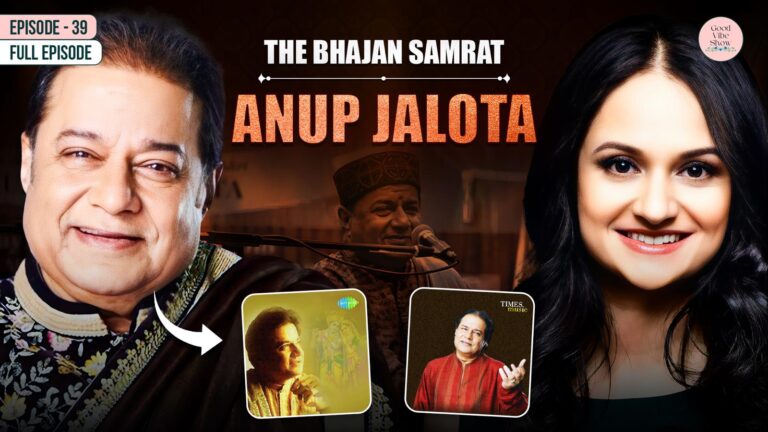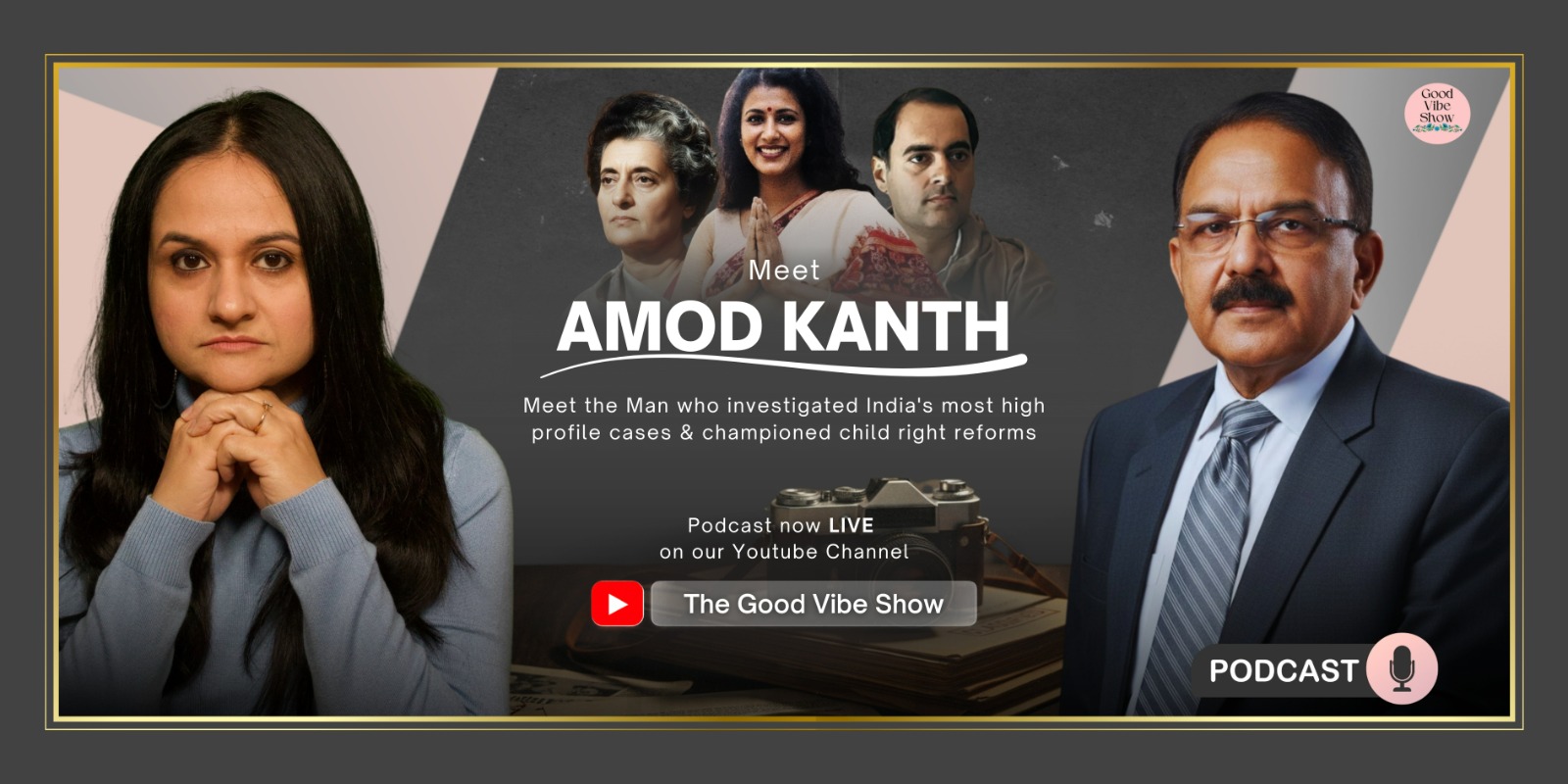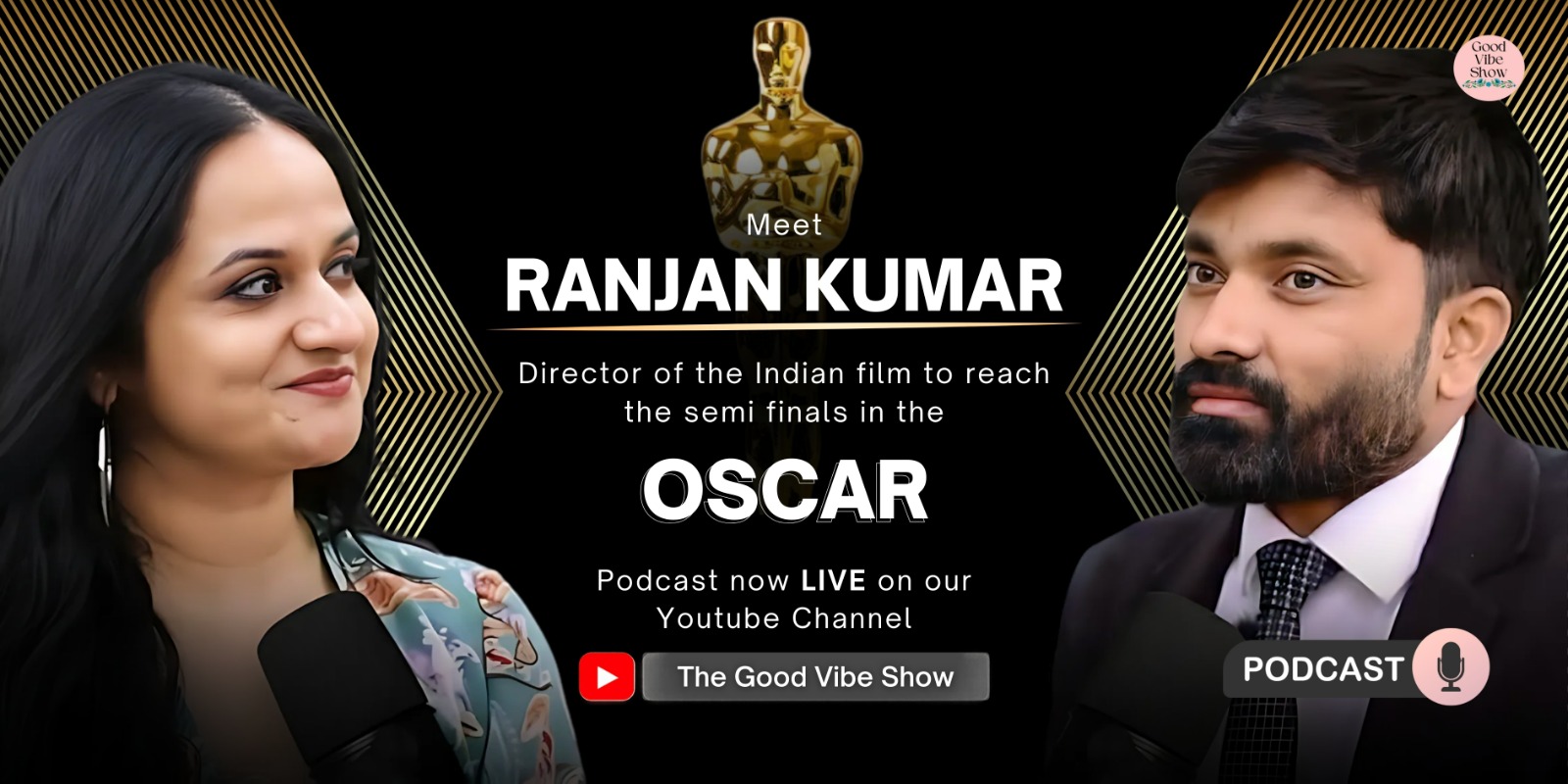A Good Vibe Show Exclusive
From morning riyaaz sessions in Lucknow to packed auditoriums across continents, Anup Jalota has redefined how India listens to devotion. For over five decades, his voice has transformed homes into sanctuaries with timeless bhajans like “Aisi Laagi Lagan,” “Jag Mein Sunder Hai Do Naam,” and “Prabhu Ji Tum Chandan Hum Paani.”
His journey—rooted in discipline, humility, and faith—proves that true music doesn’t just entertain; it elevates. It’s about purity of intention and devotion in every note.
“A bhajan isn’t performance. It’s worship.” — Anup Jalota
The Journey of a Bhajan Samrat
Born into a family where music was worship, young Anup began sitting behind his father – Guru Padma Shri Purshottam Das Jalota at the age of six, repeating every Sa Re Ga until the notes lived within him.
That unyielding discipline became his soul.
From singing in the All India Radio chorus to sharing a mic with Mohammed Rafi in Shirdi Ke Sai Baba, each milestone was a prayer answered through perseverance.
Then came 1980’s Bhajan Sandhya, an album that carried his voice to every Indian home, across generations and faiths alike.
The Art and the Gharana
A proud torchbearer of the Shyam Chaurasi Gharana, Jalota ji’s music merges classical purity with emotional intimacy.
His 6,000 + live renditions of “Aisi Laagi Lagan,” each newly improvised, reveal that devotion never repeats itself—it renews itself.
“If the heart is pure, the sur will always stay in tune.”
Life Beyond the Stage
When not performing worldwide, he practices daily riyaz and a simple wellness routine (Jala Neti) to keep the body and voice pure. He mentors young singers, promotes live bhajan evenings that introduce new talent, and continues to fill auditoriums with divine energy.
His Message to Young Singers
Anup Jalota believes devotional music today is both spiritually fulfilling and professionally rewarding—a path where art, respect, and livelihood coexist.
His guiding mantras:
- Riyaz daily — discipline is the soul of music.
- Stay humble — arrogance silences talent.
- Serve through song — let your music comfort hearts.
- Keep learning — from every ustad, every generation.
“If you miss riyaz for three days, your song starts to smell—just like a body that hasn’t bathed.”
🎧 Watch the Full Episode
Discover the music, memories, and philosophy of the man who made the world hum along with Aisi Laagi Lagan– Only on The Good Vibe Show.
🎥 Watch Now: Aisi Laagi Lagan: The Untold Story of India’s Bhajan Samrat Anup Jalota
🔗 Click to Watch the Full Episode
Frequently Asked Questions
1) What does “bhajan” mean to Anup Jatola?
To him, a bhajan is veneration, not performance. Each word must be sung with the awareness of divinity — as if God stands before the singer.
2) How did his musical training begin?
He started learning under his father at age six, practicing a single note for hours daily. That early discipline built the unshakable foundation of his voice.
3) How did his career start in Mumbai?
After moving in 1973, he joined “All India Radio’s chorus”. A chance encounter with “Manoj Kumar” led to a playback opportunity alongside “Mohammed Rafi” in “Shirdi Ke Sai Baba” — his first major break.
4) What made “Aisi Laagi Lagan ” special?
Limited budget and logistics—bringing regional actors to Pune was hard. When a key actor couldn’t make it, Ranjan acted himself out of necessity.
5) How does the Shyam Chaurasi Gharana influence his singing?
The gharana emphasizes lyrical sargam and emotional expression. Jalota ji infuses classical nuance into bhajans, turning devotion into art without losing simplicity.
6) What is his mantra for longevity and humility?
He sees talent as divine property. To preserve it, stay humble, speak kindly, and treat fans with love—your behavior should mirror your melody.
7) Can devotional music be a modern career choice?
Yes. He insists bhajan singers can earn fame, respect, and income if they pair devotion with discipline and maintain ethical conduct.
8) Does he prefer studio recordings or live concerts?
Live concerts, because they allow “freedom and connection”. He adapts his setlist to the crowd, blending bhajans, ghazals, and requests to create shared spiritual joy.
9) What keeps him positive through life’s ups and downs?
He believes challenges are signs of life itself: “Flat lines belong to the dead. As long as there are highs and lows, the heart is beating.”
10) What’s his birthday ritual and daily inspiration?
Every year he celebrates with hundreds of friends and disciples—singing together till dawn. His energy, he says, comes simply from loving his work.






